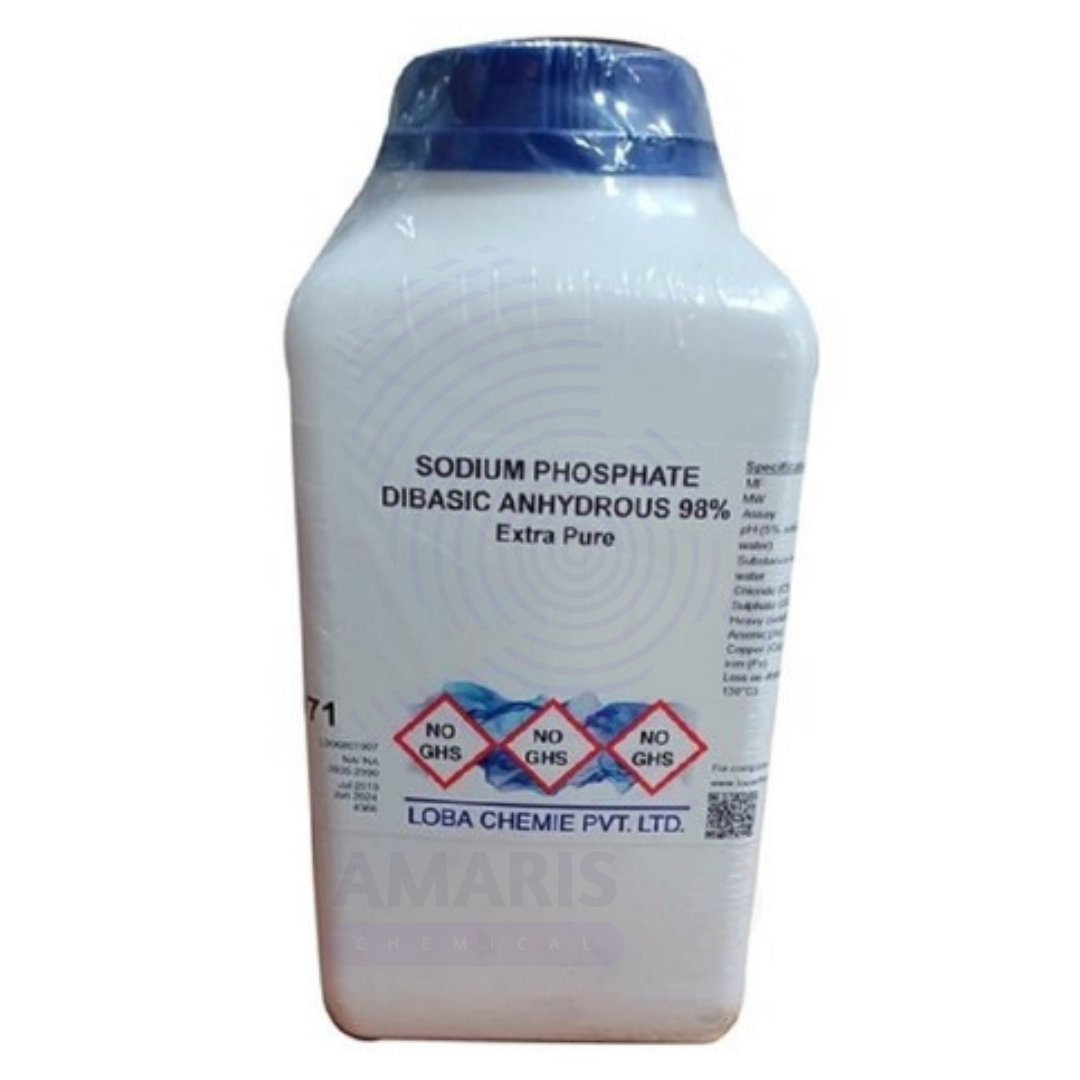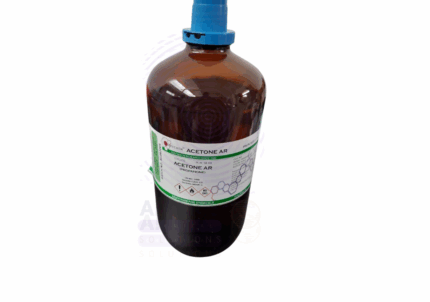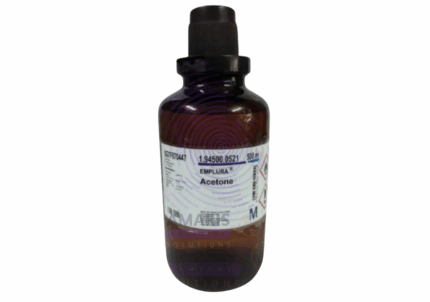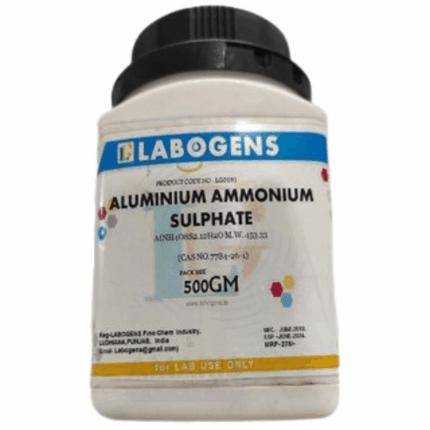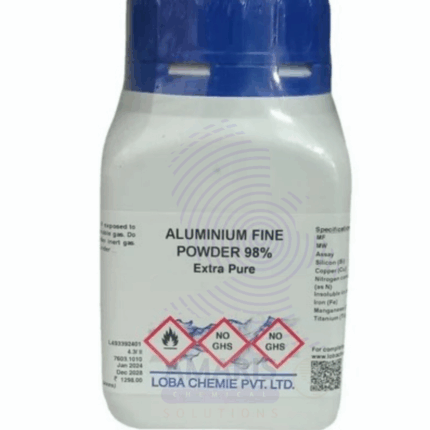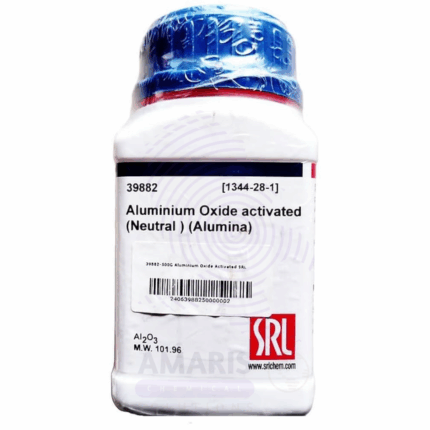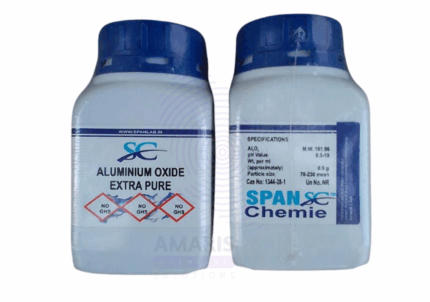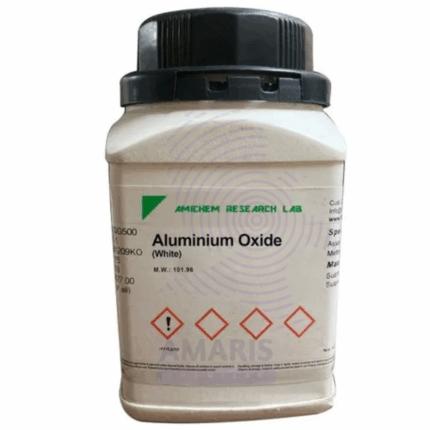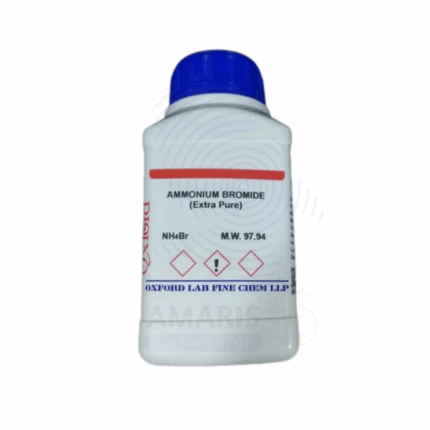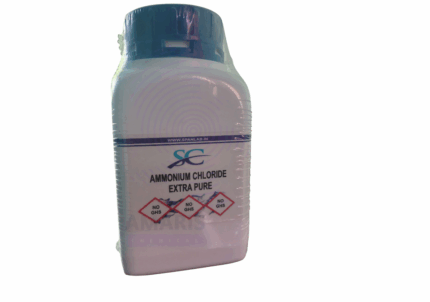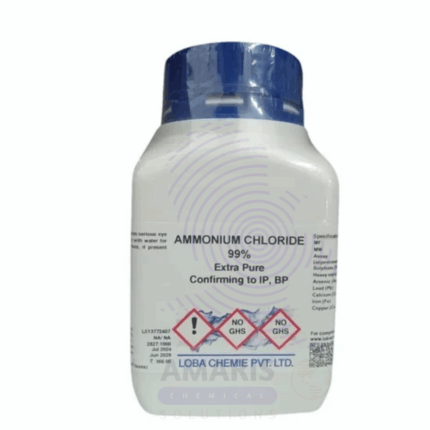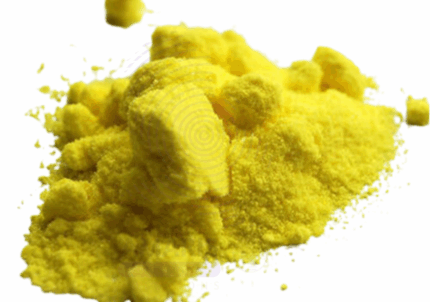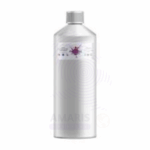
Royal Type Oil Fragrance
$ 29.00 Original price was: $ 29.00.$ 28.64Current price is: $ 28.64.
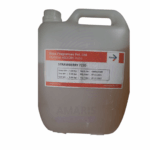
Strawberry Fragrance Oil
$ 23.00 Original price was: $ 23.00.$ 22.44Current price is: $ 22.44.
Disodium Phosphate Extra Pure
$ 17.20
Whatsapp Order
Disodium Phosphate Extra Pure is a high-grade inorganic compound commonly used in laboratories as a buffering agent, emulsifier, and reagent. It is particularly valuable in preparing phosphate buffer solutions for biochemical and molecular biology applications. Its reliable pH-stabilizing properties make it ideal for use in analytical chemistry, food analysis, and preparation of reagent mixtures. With excellent solubility in water and minimal impurities, this extra pure form ensures accuracy and consistency in experimental results across a wide range of laboratory procedures.
Description
Table of Contents
Toggle
Disodium Phosphate Extra Pure
Primary Uses
- Buffer preparation (especially phosphate buffer systems):
A key component in creating stable buffer solutions for biochemical and analytical experiments. - Reagent in analytical chemistry:
Used in colorimetric analysis and other quantitative assays due to its buffering and ionic properties. - pH control in laboratory solutions:
Helps maintain neutral to slightly basic conditions during reactions or solution storage. - Component of PBS (phosphate-buffered saline):
Widely used in biological and molecular experiments to mimic physiological conditions. - Nutrient in microbiological media:
Supplies phosphate ions essential for microbial growth in culture formulations.
Secondary Uses
- Educational use in buffer and acid-base experiments:
Ideal for demonstrating buffer action in teaching labs. - Electrophoresis buffer component:
Occasionally used in gel electrophoresis to maintain consistent pH. - Water softening simulations and studies:
Studied for its ability to chelate calcium and magnesium in lab-scale water treatment experiments. - Stabilizing agent in enzyme reactions:
Used to maintain optimal ionic strength and pH in enzymatic assays.
Additional information
| PACK SIZE |
500 grams Plastic Tin |
|---|
KEY PRODUCT FEATURES
1. Basic Identification Attributes
- Chemical Name: Disodium Phosphate
- Other Names: Sodium phosphate dibasic, Disodium hydrogen phosphate
- Chemical Formula: Na₂HPO₄
- CAS Number:
- Anhydrous: 7558-79-4
- Dihydrate: 10028-24-7
- Heptahydrate: 7782-85-6
- Grade: Extra Pure (Laboratory Grade)
- Molecular Weight:
- 141.96 g/mol (anhydrous)
- 177.99 g/mol (dihydrate)
- Appearance: White crystalline powder or granules
- Odor: Odorless
2. Physical & Chemical Properties
- Solubility: Soluble in water
- pH (1% solution): ~8.5 – 9.5
- Melting Point: ~250 °C (decomposes)
- Density: ~1.7 – 2.0 g/cm³ (varies with hydration)
- Hygroscopic: Yes, especially in hydrated forms
3. Safety & Hazard Attributes
- GHS Classification: Not classified as hazardous
- Hazard Statements: None applicable
- PPE Requirements:
- Safety goggles
- Lab coat
- Nitrile or latex gloves
- First Aid Measures:
- Inhalation: Move to fresh air
- Skin Contact: Wash with soap and water
- Eye Contact: Rinse with clean water for several minutes
- Ingestion: Rinse mouth; seek medical attention if needed
4. Storage & Handling Attributes
- Storage Conditions:
- Keep tightly closed in a cool, dry place
- Avoid exposure to moisture
- Store away from incompatible substances (e.g., strong acids)
- Handling Notes:
- Avoid creating dust
- Use in well-ventilated areas
- Wash hands after handling
5. Regulatory & Compliance Attributes
- EC Number: 231-448-7
- UN Number: Not regulated
- Hazard Class: Non-hazardous for transport
- REACH Status: Registered
6. Laboratory Applications
- Primary Uses:
- Buffering agent in chemical and biochemical laboratories
- Component in phosphate-buffered saline (PBS)
- Analytical reagent
- pH regulation in lab experiments
- Other Uses:
- Model compound for phosphate equilibrium studies
- Used in protein precipitation and purification systems
SAFETY HANDLING PRECAUTIONS
SAFETY PRECAUTIONS
- Personal Protective Equipment (PPE):
- Safety goggles
- Lab coat
- Gloves
- Storage:
- Store in a cool, dry, well-ventilated area
- Keep container tightly closed
- Protect from moisture and incompatible substances (e.g., strong acids)
- Handling Tips:
- Minimize dust generation
- Avoid breathing dust or mist
- Wash thoroughly after handling
FIRST AID MEASURES
- Inhalation: Move to fresh air. Seek medical attention if symptoms persist
- Skin Contact: Wash off with soap and water
- Eye Contact: Rinse cautiously with water for several minutes
- Ingestion: Rinse mouth. Do not induce vomiting unless instructed by medical personnel
FIRE & REACTIVITY INFORMATION
- Flammability: Not flammable
- Hazardous Decomposition: Sodium oxides, phosphorous oxides
- Incompatible With: Strong acids, moisture (hygroscopic)
Related products
Acetone Extra Pure
Acetone Extra Pure is a highly volatile, flammable, and colorless liquid widely used as a powerful solvent in laboratory and industrial applications. Known for its exceptional ability to dissolve a wide range of substances, it is commonly employed for cleaning laboratory glassware, thinning resins, and removing organic residues. In the cosmetics and pharmaceutical industries, acetone is used in nail polish removers and formulation processes. Its high evaporation rate and purity make it suitable for analytical procedures and synthesis work, especially where contaminant-free solvents are essential. With a distinct odor and low boiling point, Acetone Extra Pure is an indispensable reagent for both routine and specialized chemical operations.
Aluminium Ammonium Sulphate Extra Pure
Aluminium Ammonium Sulphate Extra Pure, also known as ammonium alum, is a high-purity double salt composed of aluminum sulfate and ammonium sulfate, typically appearing as colorless or white crystalline granules. Valued for its excellent stability and solubility in water, it is widely used in analytical chemistry, dye mordanting, and laboratory reagent preparations. Its ability to precipitate proteins makes it useful in biochemical applications, while its astringent and antimicrobial properties support its role in pharmaceutical and cosmetic formulations. The extra pure grade ensures minimal impurities, making it suitable for high-precision scientific work. It should be stored in a tightly sealed container in a dry, cool area to prevent moisture absorption and maintain its effectiveness.
Aluminium Metal Fine Extra Pure
Aluminium Metal Fine Extra Pure is a high-purity, silvery-grey powder composed of finely divided aluminum particles, ideal for precision laboratory work and specialized chemical reactions. Known for its high surface area and excellent reactivity, it is widely used in thermite reactions, metallurgical experiments, and the synthesis of aluminum-based compounds. Its fine particle size enhances its role as a reducing agent in organic and inorganic chemistry, as well as in combustion and pyrotechnic research. The extra pure grade ensures minimal trace impurities, supporting consistent and accurate results in sensitive analytical and preparative procedures. Due to its flammability and potential for dust explosions, it must be handled with caution in well-ventilated areas and stored in sealed, moisture-free containers.
Aluminium Oxide Active Neutral Extra Pure
Aluminium Oxide Active Neutral Extra Pure is a high-purity, fine white powder known for its high surface area and neutral pH, making it ideal for chromatography, adsorption, and catalyst support in laboratory research. Its active form ensures excellent capacity for separating and purifying organic compounds without altering their chemical structure, especially in column chromatography applications. Commonly used in analytical, organic synthesis, and material science laboratories, it provides consistent performance in adsorption studies, drying of solvents, and reaction monitoring. The extra pure grade ensures extremely low levels of impurities, suitable for high-precision experimental work. To maintain its activity, it should be stored in airtight containers away from moisture and reactive chemicals.
Aluminium Oxide Extra Pure
Aluminium Oxide Extra Pure is a high-purity, white, odorless crystalline powder widely used in laboratory applications for its chemical stability, hardness, and high melting point. It serves as a reliable reagent in inorganic synthesis, a polishing and grinding medium in sample preparation, and a support material for catalysts in chemical reactions. This form of alumina is also used in adsorption studies, ceramic research, and as a desiccant in controlled drying processes. Its extra pure grade ensures minimal contamination, making it suitable for sensitive analytical work and high-precision experiments. For optimal performance, it should be stored in a dry, tightly sealed container to prevent moisture absorption and maintain its physical integrity.
Ammonium Bromide Extra Pure
Ammonium Bromide Extra Pure is a high-purity, white crystalline powder highly soluble in water, widely used in laboratory settings for analytical, photographic, and synthetic applications. It serves as a reliable source of bromide ions in chemical reactions and is commonly used in preparing photographic emulsions, corrosion inhibitors, and certain pharmaceuticals. In analytical chemistry, it is employed in qualitative and quantitative analysis involving halide ion detection. The extra pure grade ensures minimal contamination, making it ideal for sensitive research and high-precision work. To preserve its stability and prevent moisture uptake, it should be stored in well-sealed containers in a cool, dry environment.
Ammonium Chloride Extra Pure
Ammonium Chloride Extra Pure is a high-purity, white crystalline salt widely used in laboratory chemistry as a source of ammonium ions and chloride ions for analytical, inorganic, and biochemical applications. It plays a key role in preparing buffer solutions, especially in conjunction with ammonia, and is commonly used in qualitative analysis, electrochemical studies, and metal treatment experiments. In addition, it serves as a reagent in synthesis reactions and as a nitrogen source in microbial culture media. The extra pure grade ensures high consistency and minimal contaminants, making it suitable for precise and sensitive laboratory work. It should be stored in a cool, dry place in well-sealed containers to maintain stability and prevent moisture absorption.
Potassium Chromate
Potassium Chromate is an inorganic chemical compound and a bright yellow crystalline solid commonly used as an oxidizing agent and pigment. It serves as a source of chromate ions in various chemical, industrial, and laboratory applications. Due to its toxic and carcinogenic nature, careful handling and strict regulatory compliance are essential. Potassium Chromate is widely used in corrosion inhibition, dyeing, and chemical synthesis processes.


 Preservatives(food)
Preservatives(food) Flavor Enhancers
Flavor Enhancers Acidulants
Acidulants Sweeteners
Sweeteners Antioxidants
Antioxidants Colorants(food)
Colorants(food) Nutraceutical Ingredients (food)
Nutraceutical Ingredients (food) Nutrient Supplements
Nutrient Supplements Emulsifiers
Emulsifiers
 Collectors
Collectors Dust Suppressants
Dust Suppressants Explosives and Blasting Agents
Explosives and Blasting Agents Flocculants and Coagulants
Flocculants and Coagulants Frothers
Frothers Leaching Agents
Leaching Agents pH Modifiers
pH Modifiers Precious Metal Extraction Agents
Precious Metal Extraction Agents
 Antioxidants(plastic)
Antioxidants(plastic) Colorants (Pigments, Dyes)
Colorants (Pigments, Dyes) Fillers and Reinforcements
Fillers and Reinforcements Flame Retardants
Flame Retardants Monomers
Monomers Plasticizers
Plasticizers Polymerization Initiators
Polymerization Initiators Stabilizers (UV, Heat)
Stabilizers (UV, Heat)
 Antifoaming Agents
Antifoaming Agents Chelating Agents
Chelating Agents Coagulants and Flocculants
Coagulants and Flocculants Corrosion Inhibitors
Corrosion Inhibitors Disinfectants and Biocides
Disinfectants and Biocides Oxidizing Agents
Oxidizing Agents pH Adjusters
pH Adjusters Scale Inhibitors( water)
Scale Inhibitors( water)
 Antioxidants(cosmetic)
Antioxidants(cosmetic) Emollients
Emollients Fragrances and Essential Oils
Fragrances and Essential Oils Humectants
Humectants Preservatives
Preservatives Surfactants(cosmetic)
Surfactants(cosmetic) Thickeners
Thickeners UV Filters
UV Filters
 Fertilizers
Fertilizers Soil Conditioners
Soil Conditioners Plant Growth Regulators
Plant Growth Regulators Animal Feed Additives
Animal Feed Additives Biostimulants
Biostimulants Pesticides (Herbicides, Insecticides, Fungicides)
Pesticides (Herbicides, Insecticides, Fungicides)
 Active Pharmaceutical Ingredients (APIs)
Active Pharmaceutical Ingredients (APIs) Excipients
Excipients Solvents(pharmaceutical)
Solvents(pharmaceutical) Antibiotics
Antibiotics Antiseptics and Disinfectants
Antiseptics and Disinfectants Vaccine Adjuvants
Vaccine Adjuvants Nutraceutical Ingredients (pharmaceutical)
Nutraceutical Ingredients (pharmaceutical) Analgesics & Antipyretics
Analgesics & Antipyretics
 Analytical Reagents
Analytical Reagents Solvents(lab)
Solvents(lab) Chromatography Chemicals
Chromatography Chemicals Spectroscopy Reagents
Spectroscopy Reagents microbiology-and-cell-culture-reagents
microbiology-and-cell-culture-reagents Molecular Biology Reagents
Molecular Biology Reagents Biochemical Reagents
Biochemical Reagents Inorganic and Organic Standards
Inorganic and Organic Standards Laboratory Safety Chemicals
Laboratory Safety Chemicals Specialty Laboratory Chemicals(Special Laboratory Equipment)
Specialty Laboratory Chemicals(Special Laboratory Equipment)
 Demulsifiers
Demulsifiers Hydraulic Fracturing Fluids
Hydraulic Fracturing Fluids Scale Inhibitors(oil)
Scale Inhibitors(oil) Surfactants(oil)
Surfactants(oil) Drilling Fluids
Drilling Fluids
 Dyes and Pigments
Dyes and Pigments Bleaching Agents
Bleaching Agents Softening Agents
Softening Agents Finishing Agents
Finishing Agents Antistatic Agents
Antistatic Agents
 Admixtures
Admixtures Waterproofing Agents
Waterproofing Agents Sealants and Adhesives
Sealants and Adhesives Curing Compounds
Curing Compounds Concrete Repair Chemicals
Concrete Repair Chemicals Anti-Corrosion Coatings
Anti-Corrosion Coatings
 Surfactants(cleaning)
Surfactants(cleaning) Builders
Builders Enzymes
Enzymes Solvents (Cleaning)
Solvents (Cleaning) Fragrances
Fragrances
 Electronic Chemicals
Electronic Chemicals Catalysts
Catalysts Lubricants
Lubricants Photographic Chemicals
Photographic Chemicals Refrigerants
Refrigerants Automotive chemicals
Automotive chemicals Pyrotechnic Chemicals
Pyrotechnic Chemicals
 Biodegradable Surfactants
Biodegradable Surfactants Bio-based Solvents
Bio-based Solvents Renewable Polymers
Renewable Polymers Carbon Capture Chemicals
Carbon Capture Chemicals Wastewater Treatment Chemicals
Wastewater Treatment Chemicals
 Pigments
Pigments Solvents(paint)
Solvents(paint) Specialty Coatings
Specialty Coatings Binders/Resins
Binders/Resins Additives
Additives Driers
Driers Anti-Corrosion Agents
Anti-Corrosion Agents Functional Coatings
Functional Coatings Application-Specific Coatings
Application-Specific Coatings
 Fresh Herbs
Fresh Herbs Ground Spices
Ground Spices Whole Spices
Whole Spices Spice Blends
Spice Blends Dried Herbs
Dried Herbs
 Leavening Agents
Leavening Agents Dough Conditioners
Dough Conditioners Flour Treatments
Flour Treatments Fat Replacers
Fat Replacers Decoratives
Decoratives Preservatives(baking)
Preservatives(baking)
 Plasticizers & Softeners
Plasticizers & Softeners Reinforcing Agents
Reinforcing Agents Adhesion Promoters
Adhesion Promoters Vulcanizing Agents
Vulcanizing Agents Antidegradants
Antidegradants Blowing Agents
Blowing Agents Fillers & Extenders
Fillers & Extenders Accelerators & Retarders
Accelerators & Retarders